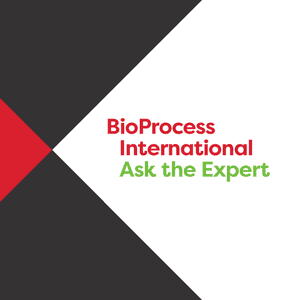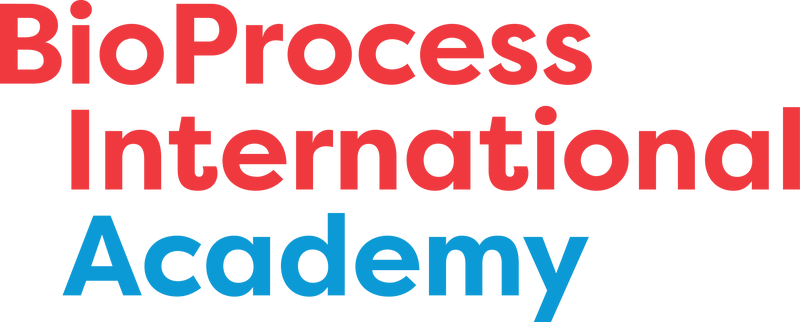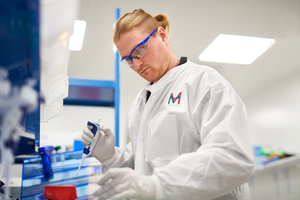Addressing Knowledge Gaps and Skills Development: Modular Training Keeps the Bioindustry at the Leading Edge
One major challenge facing the global bioindustry today is finding talented individuals to work in the type of highly skilled interdisciplinary environments necessary for effective bioprocess development. Ideally, such individuals require a combination of technical knowledge and expertise spanning biological sciences, physical sciences, mathematics, and engineering. Numerous industry surveys have repeatedly stressed the lack of suitably trained individuals equipped with necessary skills to work at the biology−engineering interface to meet the growing and changing demands of industry.
The challenge is in fact two-fold: The need to secure a sufficient pipeline of skilled individuals entering the bioprocess industries while simultaneously supporting the existing, experienced workforce with updates on new trends, technologies, and methodologies – and including programs to repurpose skills as businesses move into new therapy areas. To address the latter challenge, several training programs have been created at different levels over the years ranging from hands-on technical training to more advanced level master-degree courses and doctoral programs. Some of the most significant current providers include the Department of Biochemical Engineering at University College London (UCL) in the United Kingdom, the National Institute for Bioprocessing Research and Training (NIBRT) in Ireland, and the NC State University Biomanufacturing Training and Education Center (BTEC) in the United States.
Since its formation in 1998, the UCL Department of Biochemical Engineering has been dedicated to addressing both ends of the challenge: ensuring that skilled individuals enter the sector through its extensive undergraduate and graduate degree programs and providing a mechanism for continuing professional development of the existing workforce.
The Modular Training for the Bioprocess Industry (MBI) program was pioneered in 1994 by Professor Mike Hoare (FREng, FIChemE) with the aim of giving industrial delegates the skills and confidence needed to turn life science discoveries into real outcomes such as new medicines and therapies or into more environmentally friendly, sustainable bioprocesses.
During the early days of the MBI program, the UK higher education sector was annually training over 10,000 life scientists, fewer than 800 process engineers and approximately 50 biochemical engineers.
With an obvious skills gap in the industry, it was essential to train existing life scientists and process engineers in R&D and process development and manufacturing teams in bioprocessing and biochemical engineering to strengthen the sector and ensure continuity. Working with key stakeholders in industry, program founders conducted a comprehensive due diligence exercise to identify existing training offerings in the marketplace, but none were identified. This provided an opportunity to develop a new, world-leading bioprocess training program; however, with no benchmarks for comparison a strong steer from industry was essential.
MBI Program Core Objectives |
|
Impact of the MBI Program on Industry — Key Successes
Over its 20 years of existence, the MBI program has expanded significantly to 13 UCL accredited short courses designed in collaboration with more than 70 industrial experts. These experts not only help deliver lectures, but also take delegates through industrially relevant case studies and workshops providing interactive learning experiences. The key objective of these modular three- and four-day courses (see the “MBI Program Core Objectives” box) is to provide the bioprocessing workforce with up-to-date skills and knowledge to develop validatable, efficient, and robust processes and to improve existing ones. This is achieved through acquiring detailed knowledge of process options and fundamental engineering constraints.
Training is focused not only on core upstream and downstream bioprocess operations and facility design, but it also aims to keep delegates at the forefront of the latest technical and regulatory developments, including statistical design of experiments (DoE), process analytical technologies (PAT), and quality-by-design (QbD). Other modules provide overviews of emerging areas such as vaccine manufacture and cell and gene therapy bioprocessing.
Flexibility is key for industrial delegates. Although courses are modular to fit around work commitments and can be completed standalone, individuals also can choose to take their formal education one step further by combining courses to gain a UCL accredited certificate-, diploma-, or master’s-level qualification to help further career progression. To date, 28 industrialists have completed MBI qualifications with a further six progressing to the master’s qualification.
The program’s focus on common bioprocess engineering principles helps bring together a bioprocess networking community across a number of sectors (pharmaceuticals, biopharmaceuticals, regenerative medicine, and chemicals) to share challenges and best practices. The modules also provide UCL and collaborating academics with a platform to disseminate cutting-edge bioprocess-related research. When combined effectively, this knowledge exchange inspires ideas that can be implemented to improve process efficiency and drive down time and manufacturing costs – factors that are vital for a competitive industry. This has led to recognition of the UCL Biochemical Engineering department and the MBI program in a series of awards, including the IChemE award for training innovation (2012), the Queen’s Anniversary Prize for Higher Education for pioneering education in bioprocessing (2013), and the UCL Life Learning Award, which recognized the MBI program as a beacon of bioprocess leadership and innovation (2014).
Over the years the MBI program has gained recognition and drawn people from over 300 companies, including small enterprises and larger multinational companies. Over 30% of the delegates are from outside the United Kingdom, demonstrating strong international impact. An interesting point is that delegate profiles are diverse: They range from life scientists and process engineers who are more hands-on in development and manufacture, to group leaders, senior-level directors, and executives who are keen to gain insights on current trends, particularly around regulatory affairs and novel cutting edge research. Beyond the learning experience, they benefit from the opportunities to share challenges and best practices with the community that the program creates.
The case studies that follow provide insights from previous delegates, their motivations for participating in the MBI program, and how their participation has benefited their personal development, career progression and their employers.
Case Studies
Mairead Looby, Director, MS&T DS, at Bristol Myers Squibb (Ireland) — MBI Masters Graduate, UCL Engineering Doctorate (EngD) Graduate and Current MBI Lecturer: The diversity of the modules initially attracted me to the MBI program. They cover a broad range of topics from stem cell bioprocessing to design of experiments and validation. At that time in my career I wanted to expand my scientific and technical knowledge especially in areas with which I was less familiar.
The program provided a platform to enable this. I was working full time in Ireland, so the flexible structure of the modules meant that I could balance the time studying for the master’s degree with work and family obligations. I particularly enjoyed hearing from industry colleagues to gain their perspectives on different technologies and challenges they have encountered.
As well as supporting my career, more personally the MBI master’s degree gave me an appetite for constantly learning and continually increasing my knowledge. After completing the master’s, I studied for an EngD in bioprocessing at UCL sponsored by my employer and focusing on QbD. The knowledge I gained through these programs has certainly been instrumental in some of my career choices to date. Studying at UCL also has given me insight into the value of promoting the career development of my own staff. The MBI program at UCL is an excellent forum for folks to learn about a diverse range of topics relating to biologics.
I now very much enjoy coming back to teach on the MBI “Quality by Design for Effective Bioprocess Characterization and Validation” module. It is an opportunity to meet the UCL staff and industry colleagues and also to share with the student delegates some of the experiences that I have encountered.
John Moore, Director of R&D; Sarah Kingsland, Bioanalytics Manager (MBI Master’s Graduate); and Robin Turnbull, Project Scientist (MBI Master’s Graduate) — Bio Products Laboratory Ltd. (BPL) Staff Training Scheme (United Kingdom): Bio Products Laboratory Ltd. (BPL) had a strategic goal to increase the depth of biochemical engineering knowledge within its R&D department. The desired result was to facilitate process development, modeling, troubleshooting, and technology transfer. Encouraging employees to attend and complete MBI program qualifications at UCL has been beneficial for their own personal development and career progression, which in turn has brought benefits to the company. UCL was our training partner of choice based on a long-standing relationship through sponsorship of doctoral research projects, the range of courses available, and former UCL alumni within BPL. In addition, UCL is recognized as being a world-class university with an outstanding reputation in biochemical engineering.
The MBI program is taught in a highly engaging way with real-world relevance to our ongoing work at BPL. Modules provide BPL staff with a better understanding of the application of engineering principles as well as an insight into current trends within the industry. This further enables R&D scientists to talk the same language as engineers and manufacturing staff and consider process design in terms of large-scale operation and economics. The broad coverage of key topics on process design, validation, management, and analytics helps equip employees who complete qualifications to be leaders of BPL projects and work groups. The broad coverage of key topics on process design, validation, management, and analytics helped equip employees who completed qualifications to be leaders of BPL projects and work groups – particularly in areas focusing on design of processes that have been transferred to our manufacturing facility and contributed to equipment specification. They have also been involved in scaling and transfer of processes between manufacturing facilities, process improvement and troubleshooting.
UCL Biochemical Engineering demonstrates a high level of industrial awareness supported by a wide-ranging bioprocess industry network. This was initially a surprise to us because universities typically tend to be more interested in “blue sky” research and not concerned with real-world applications. But this is not the case at UCL, where the focus is on what can work in an industrial setting. More than 20 BPL staff have participated in MBI courses, and eight staff members have completed MBI qualifications.
Geraldine Hughes, Senior Process Scientist at Pfizer (Ireland) — Current MBI Master’s Candidate: I began researching the MBI program at UCL when I was assigned to a new project within Pfizer and wanted to gain a greater insight into biopharmaceutical downstream processing. A number of my colleagues have completed various MBI courses over the past eight years, and those who completed the master’s program have gone on to senior management positions within the technology transfer, process development, and project management spaces. The program was a starting point and one that was recommended to me. My main motivation was that the program was founded and focused on current industrial operations, challenges, and innovative technologies in combination with relevant theoretical knowledge. I hoped to be able to bridge the gap between on-the-job training and formal learning. Additionally, I was attracted to the three- and four-day structure of the modules because of my need to travel from Ireland. So it suited me that the modules are presented in blocks.
My favorite aspect of the MBI program has been the experience of returning to university studies and learning new things. I think that once you work in industry and then return to the university, you have developed a different mind-set and a different way of applying information – because you know what is directly relevant in industry. The biggest surprise to me was the diversity of people who attend MBI modules; I wasn’t expecting some of the delegates to be so experienced. I was also impressed by the facilities at UCL and how much the university collaborates with industry in a wide range of research areas. It has been beneficial to meet new people from academia and other biopharmaceutical companies and related industries. Sharing experiences and debating topics has been very rewarding.
Kyle Jones, Research and Development Scientist at Pall Corporation (United Kingdom) — Current MBI Master’s Candidate: Ever since I started working at Pall Corporation, I’ve been interested obtaining a master’s degree. My background is in science, but most of my knowledge of bioprocessing has come from working at Pall Corporation. My reason for selecting the MBI program was based on two objectives: gaining a degree from a high-ranking university and benefiting from the range of courses available on different aspects to bioprocessing. I had the opportunity to learn from industry professionals and academics who have been involved in bioprocessing for most of their careers.
I also have been impressed to see the facilities and instrumentation available at UCL and to also gain an insight into current research under way at the university. I believe that the MBI master’s degree will be pivotal toward helping me progress up my career path. Given its competitive environment, I believe that the MBI master degree will be pivotal toward helping me achieve my career goals.
VISION Leadership
The MBI program has been the catalyst for creation of the VISION Leadership course. Now in its seventh year, this three-day annual course is supported by bioprocess briefings throughout the year. VISION was created to fill a gap in the market, identified together with key industrial partners, to cater specifically to individuals at senior management and executive levels within the bioindustry. In the rapidly evolving technology-driven bioindustries, these individuals are facing the challenging tasks of
developing and adapting to new business models
identifying cutting edge research that can cost-effectively translate to production level
and devising and implementing strategies that can be implanted within the global regulatory, marketing, and sociopolitical landscapes.
Designed in collaboration with key advisors, including Barry Buckland (CEO, BiologicB, LLC), Charles Cooney (Professor Emeritus, MIT), and Rahul Singvi (COO, Takeda Vaccines), VISION focuses on developing long-lasting relationships between academia and thought leaders in industry to capture synergies between science, technology, and business practice, helping to drive innovation and entrepreneurship and to shape the future of the bioprocess industry.
VISION is unique and necessarily more focused than a traditional, generic leadership course. As described by Charles Cooney, it offers
. . . an opportunity for senior leaders in the life science industries to do a deep dive into the current and pressing issues of this industry. The interactive format provides a forum to ask the difficult questions at the heart of this dynamic industry and explore innovative solutions. Why, at a time of unprecedented scientific discovery is the research productivity of the industry falling? How can we extract, translate, and apply the lessons from building new companies into an established industry? The participants bring a diverse perspective on the issues facing the industry and the resulting discussion provide fascinating and insightful answers. As a consequence of the interaction with colleagues and faculty, this course builds a community that together develop a deeper understanding of the issues as well as the strategies to navigate the path forward.
Rahul Singhvi adds that “what sets VISION apart from other courses in the leadership and innovation space is the bioindustry-focused approach, teaching through real case studies taught by current leaders who have experienced firsthand how it is done and what pitfalls to avoid.”
Future Outlook for Skills Development
The success of MBI and similar programs at other institutions is based on the ability to work closely with industry to create modules and content that meet the changing skills requirements of a fast-moving sector. This has led to the development of a new course, “Cell and Gene Therapy Bioprocessing,” to support training and development in the advanced therapy medicinal products (ATMPs) space. Furthermore, exploring delivery methods to reach a wider audience and facilitate flexible learning are important considerations. Consequently, this led to the development of online MBI courses in antibody–drug-conjugate therapies and industrial biotechnology.
Simultaneously, it is critical that while industry highlights the skills gaps and need for training provision, it also develops leadership-driven approaches and mechanisms to create and fund staff training and development. Industry needs to recognize that this kind of training is a critical investment for an organization and a critical channel for bringing new expertise into teams, empowering and motivating individuals to contribute more effectively. Ultimately, such programs enable staff to be in stronger positions to contribute and implement new learnings, therefore improving performance, building multidisciplinary teams, and benefiting their organizations’ needs to improve efficiency, drive faster times to market, and reduce costs while generating cutting-edge scientific and business results.
Dr. Naveraj K Gill is Strategic Alliance Director for Biochemical Engineering and Professor Gary J Lye (FREng, FIChemE, SFHEA) is Head of the Biochemical Engineering Department, both at the University College London; [email protected].
MBI is a registered trademark of the University College London.
You May Also Like





